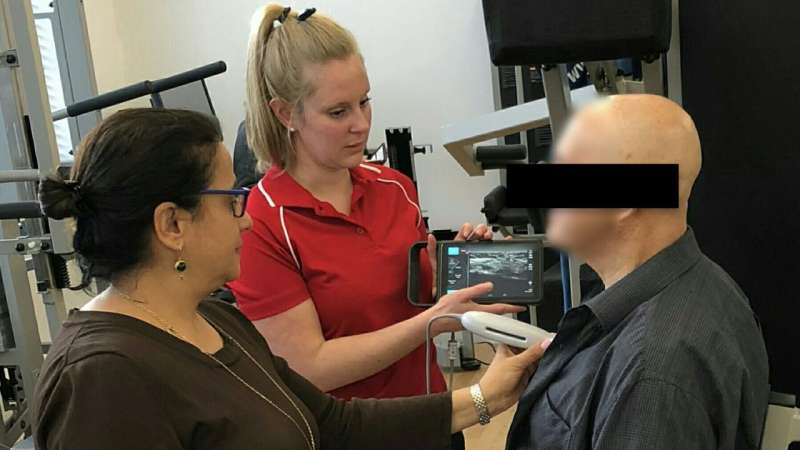
For post-op heart surgery patients, the road to recovery can often be slow and frustrating, but new research conducted by Swinburne could have patients looking at their rehab charts with a new level of optimism.
Exercise is typically limited to light level activity for twelve weeks as patients recover from operations that have taken up to four hours to complete. But the new Swinburne study shows upper body resistance training can commence and be beneficial just two weeks after an operation.
Exercise like your heart depends on it
This game-changing research has been conducted by Accredited Exercise Physiologist Jacqueline Pengelly, who is Swinburne Physiotherapy’s first Ph.D. scholarship holder.
Commencing just two weeks after heart surgery, Pengelly says the program included 12 weeks of resistance training, performed using both limbs simultaneously.
“Patients are often told to avoid or limit use of their arms and undertake walking, meaning they’re unable to perform or resume their daily or recreational activities, which can be a cause of frustration and feelings of loss of identity,” said Pengelly.
“Patients in the resistance training program reported feeling stronger and were motivated to keep trying to increase their workload. Because they were supervised, and their safety and recovery monitored, they gained the knowledge and confidence needed to recommence the activities they enjoy safer and earlier than minimal activity rehab programs.
“Mild cognitive impairment can affect up to 80 percent of patients for months, or even years, leading to loss of independence and delayed recovery. Our study has shown that patients who undertake early resistance training recover quicker, within three months after surgery.”
Rehashing rehab for the better
Jacqueline says there is an increasing body of evidence promoting more active recovery programs, as opposed to passive.
“It allows patients to become independent earlier in their recovery process, relying less on family/caregivers, which has a positive impact on both their physical and mental health.”
The future of post-op recovery
Jacqueline now has her sights set on conducting a larger study with more surgery and resistance training intervention sites using a range of resistance equipment.
“This would mean that resistance training is more accessible to patients and give exercise physiologists and physiotherapists the confidence to replicate the training within their own cardiac rehabilitation programs.
“Exercise is medicine—exercise physiologists need to carefully select outcome measures that are appropriate to the patient’s ability and use this information to prescribe exercises and exercise intensities that are appropriate. It’s time for change, so let’s get moving.”
Source: Read Full Article